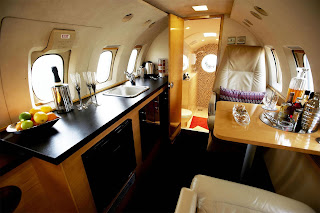Kandinsky og Josef Albers var begge kunstnere som underviste ved Bauhaus. "In 1922 Vasily Kandinsky (b. 1866, Moscow; d. 1944, Neuilly-sur-Seine,
France) accepted a teaching position at the Bauhaus, the state-sponsored
Weimar school of art and applied design founded in 1919 by architect
Walter Gropius. The school’s curriculum was based on the principle that
the crafts were equal to the traditional arts and was organized
according to a medieval-style guild system of training under the
tutelage of masters. Kandinsky conducted the Wall Painting Workshop and
Preliminary Course and taught at all three of the school’s sequential
locations in Weimar, Dessau, and Berlin until 1933, when the Bauhaus was
closed due to pressure from the National Socialist (Nazi) government.
Geometric shapes came to play a dominant role in Kandinsky’s
pictorial vocabulary at the Bauhaus; the artist, who was interested in
uncovering a universal aesthetic language, increased his use of
overlapping, flat planes and clearly delineated forms. This change was
due, in part, to his familiarity with the Suprematist work of Kazimir
Malevich and the art of the Constructivists. Kandinsky’s turn toward
geometric forms was also likely a testament to the influence of industry
and developments in technology." (Fra Guggenheim New York)
"In 1923, Walter Gropius
appointed him to the teaching staff of the Bauhaus. Here, he
represented the classical Bauhaus concept whereby every artistic
activity was to be developed according to both the function of the piece
and the properties of the material. He received a teaching commission
for the preliminary course and also became an apprentice master of works
in the glass painting workshop. In 1925, Walter Gropius appointed him
as a junior master. In the same year, he married the Bauhaus student
Anneliese (Anni) Fleischmann.
From 1925 to 1927/28, he directed the preliminary course at the Bauhaus Dessau together with László Moholy-Nagy. After the latter’s departure in 1928, Albers became the sole director of the preliminary course and also the head of the carpentry workshop until 1929. At the Bauhaus Berlin,
Albers was head of the preliminary course and taught drawing and
lettering classes from 1932 up to the school’s dissolution in 1933." (Fra http://bauhaus-online.de/en/atlas/personen/josef-albers)
In 1920, Walter Gropius appointed Klee to the Staatliches Bauhaus in Weimar. He became the director of the bookbinding workshop in 1921, of the metal workshop in 1922 and of the glass painting workshop
from 1922/23 to 1925. From 1921 to 1924/25 in Weimar, Klee taught
classes in elemental design theory as part of the preliminary course.
The first Klee exhibition was organised in New York in 1924. That same
year, Klee and the artists Alexej Jawlensky, Wassily Kandinsky and Lyonel Feininger
co-founded the group Die Blauen Vier (The Blue Four). One year later,
the Vavin-Raspail gallery in Paris organised the first French exhibition
of Klee’s work. In 1925, Klee’s Pedagogical Sketchbook was the second
volume in the series of Bauhaus Books published by the Bauhaus.
In October 1919, Itten was appointed as one of the first masters at the Staatliches Bauhaus in Weimar by Walter Gropius. Until 1922/23, he was both director of the preliminary course which he had developed independently for the introductory semester and master of form of all the workshops
except for the ceramic, bookbinding and printing workshops. Itten made a
significant contribution to the Bauhaus by promoting the Mazdaznan
cult, which spans religions and philosophies. After internal differences
with Walter Gropius, Itten left the Bauhaus in March 1923.
torsdag 26. november 2015
onsdag 25. november 2015
torsdag 12. november 2015
onsdag 11. november 2015
Olafur Eliasson
Denne herren er også opptatt av lys og farge.
Og "forskende" akkurat som D. Rybakken...
"Olafur Eliasson (f. 1967, Danmark/Island) är en av samtidens mest uppmärksammade konstnärer. Sedan tidigt 1990-tal har hans verk presenterats i åtskilliga utställningar över hela världen. Eliasson arbetar i skulptur, måleri, fotografi, film och installationer, men också med arkitekturprojekt och platsspecifika verk i det offentliga rummet. Ljus, vind och vatten i alla dess former är återkommande inslag. Trots detta är naturen snarare närvarande som verkens material än som motiv."
Og "forskende" akkurat som D. Rybakken...
"Olafur Eliasson (f. 1967, Danmark/Island) är en av samtidens mest uppmärksammade konstnärer. Sedan tidigt 1990-tal har hans verk presenterats i åtskilliga utställningar över hela världen. Eliasson arbetar i skulptur, måleri, fotografi, film och installationer, men också med arkitekturprojekt och platsspecifika verk i det offentliga rummet. Ljus, vind och vatten i alla dess former är återkommande inslag. Trots detta är naturen snarare närvarande som verkens material än som motiv."
Kreativ med lys...
Daniel Rybakken og det nye lyset
Daniel Rybakken (1984) har markert seg som en nyskapende og markant designer. Han eksperimenterer med dagslys og arbeider med å skape illusjon av dagslys der det ikke finnes. Rybakken undersøker hvordan lyset påvirker mennesker og den arkitektoniske romopplevelsen. Han lager både møbler og lamper, men også romlige kunstinstallasjoner.
Daniel Rybakken (1984) har markert seg som en nyskapende og markant designer. Han eksperimenterer med dagslys og arbeider med å skape illusjon av dagslys der det ikke finnes. Rybakken undersøker hvordan lyset påvirker mennesker og den arkitektoniske romopplevelsen. Han lager både møbler og lamper, men også romlige kunstinstallasjoner.
George Clark inspirerer...
Hvis vi har litt tid innimellom, lar vi oss inspirerere av Amazing Spaces og George Clarke. Bildet ovenfor viser den geniale innredningen av en gammel jet som var på vei til søppelplassen...
torsdag 5. november 2015
onsdag 4. november 2015
Amazing
George Clarke finner mye interessant av innredning og byggekunst rundt omkring i verden.
Dette er i fra de italienske alper.
Dette er i fra de italienske alper.
søndag 1. november 2015
Abonner på:
Kommentarer (Atom)



















